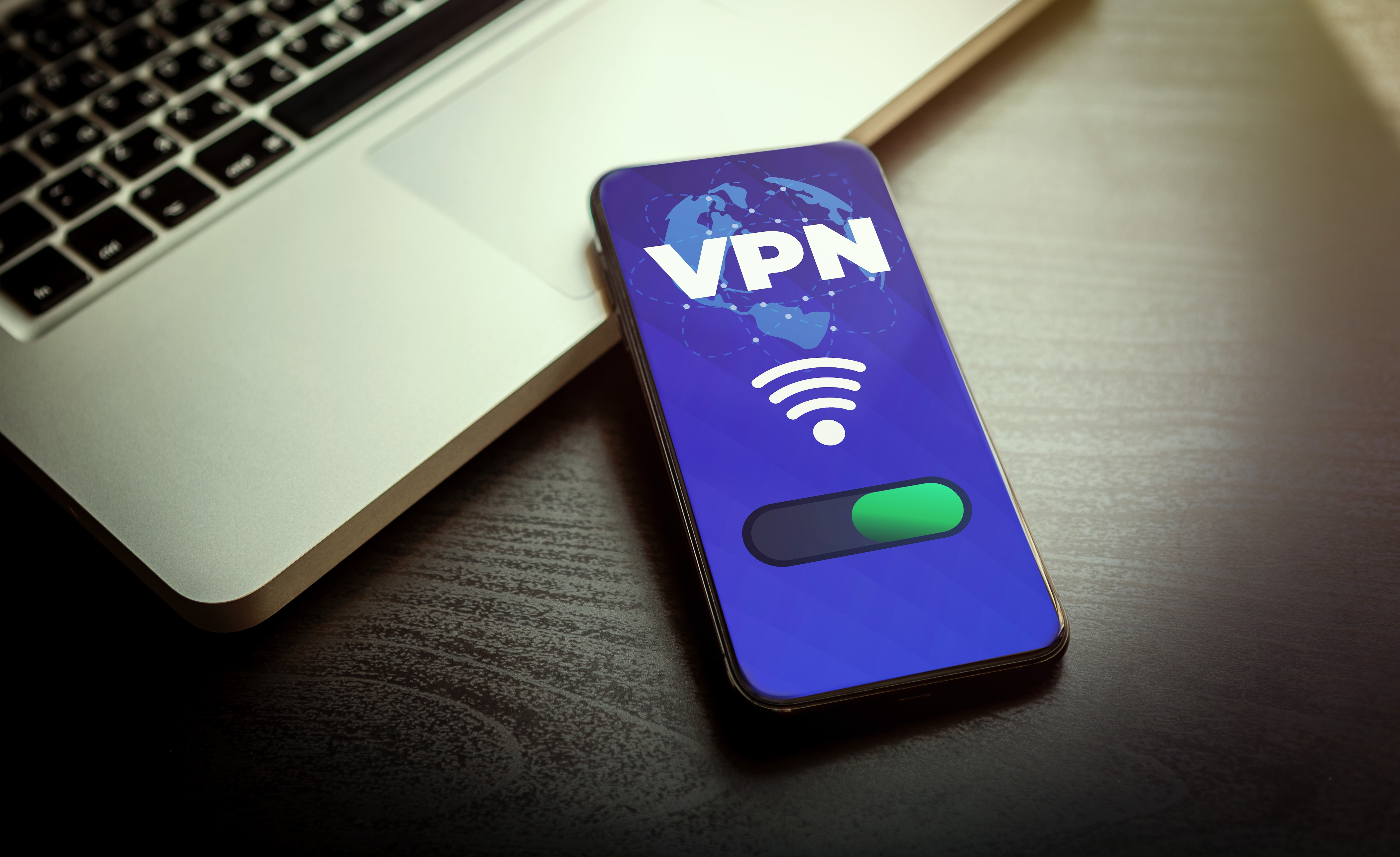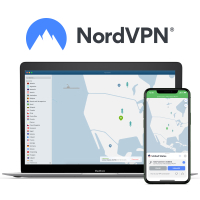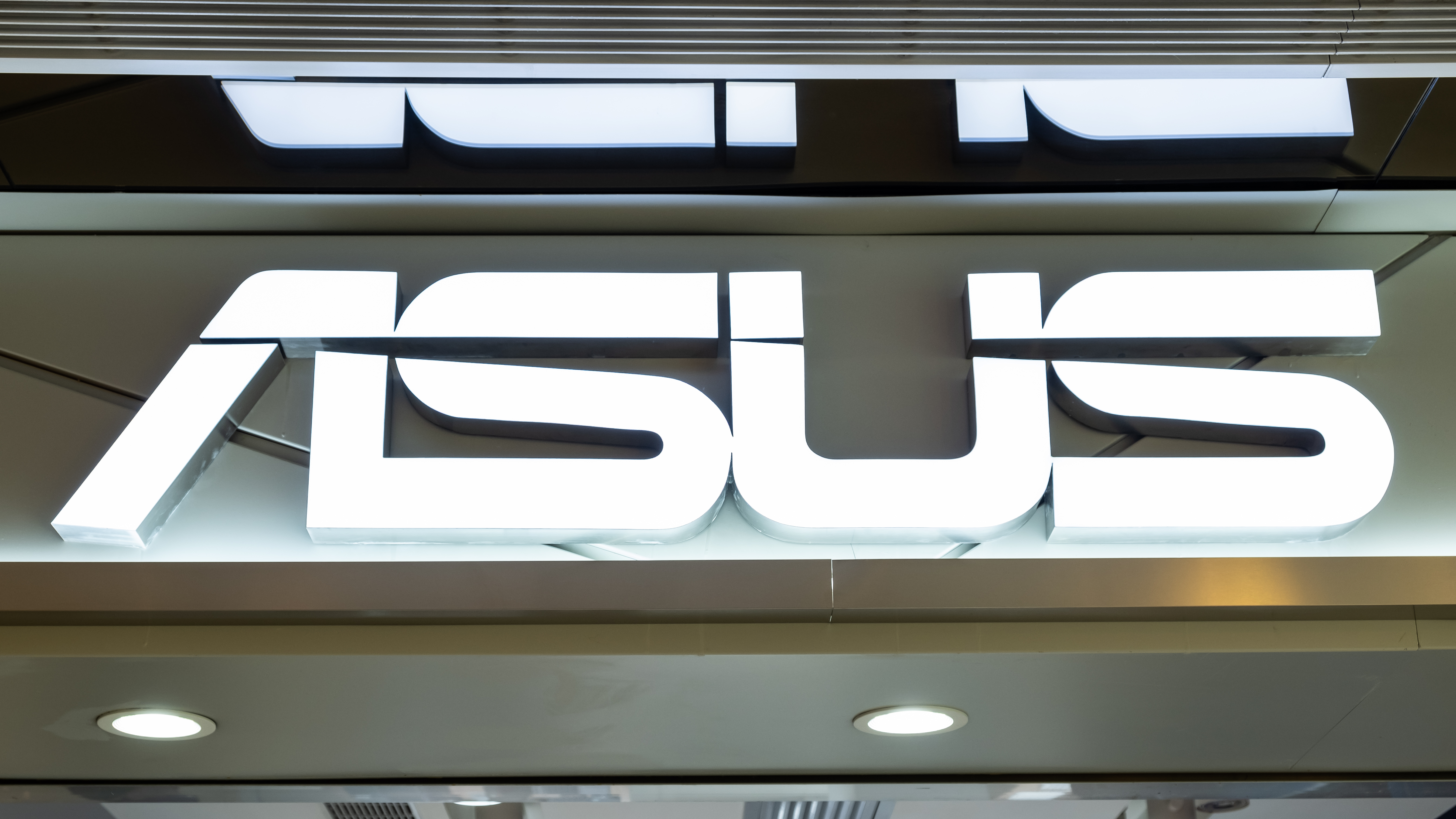Are VPNs safe?
Most VPNs are safe, but some definitely aren't—here's a guide to spotting which is which

If you've been looking to increase your online security and privacy, no doubt you've come across suggestions that you start using a VPN. This handy bit of kit encrypts your internet connect and masks your IP address, anonymizing you online and keeping your data safe from prying eyes. Plus, the best VPNs will help you in your downtime, too, helping improve your gaming experience and unblocking content from across the globe.
With all this being said, with changing VPN laws around the world and increasing cybersecurity risks, it's natural to have some anxiety over whether VPNs are safe.
This answer is a little more complex than you might think. While there are so many excellent, secure VPNs out there, there are also some that (put simply) aren't. This can be in a range of different ways, from logging or selling your data to turn a profit, having security vulnerabilities that can be used by hackers to infiltrate their networks, or even being government-regulated and therefore useless. To avoid this, you must be careful when selecting a VPN provider.
Luckily for you, here at Tom's Guide we have thousands of hours of hands-on experience in testing VPNs, putting their claims to the test and making sure that they will keep you safe. This guide will answer your questions on VPN safety, from whether you can trust free VPNs to how travelling with a VPN can impact your safety.
NordVPN dominated in our testing, excelling not only in security and privacy, but in speed and unblocking, too.
Prices start from just $2.99 per month for a two-year plan (paid $80 upfront, including three months free), and there's even a 30-day money-back guarantee, so you can try it out to see if it's right for you.
What is a VPN?
A virtual private network, as the name suggests, creates a private network by redirecting your internet traffic away from your internet service provider's (ISP’s) servers and routing it through remote and privately owned (or rented) servers of the VPN provider. This essentially hides your IP address (your device’s digital signature) and replaces it with a fake one, thereby spoofing your location and safeguarding it from prying eyes.
Additionally, a VPN also encrypts your internet traffic, meaning anyone without the decryption key cannot go sneak peeking into your data or what you are doing online. Put together, VPNs are security tools that enhance your online privacy, safety, and anonymity.
VPNs become all the more crucial when you are on an unencrypted and unsecured network, such as public Wi-Fi. By using one of the most secure VPNs, you can protect your data from exposure to those who might be trying to spy on it, whether this is hackers, ISPs, and government agencies.
While security is certainly the main draw of using the best VPN services, they can do much more than that. VPNs are also extremely popular as a means of getting around content blocks and government censorship. By using one of the best streaming VPNs, you can access geo-restricted (either by the streaming providers or your government) movies, TV shows, and sports events.
A VPN with powerful unblocking capabilities can also help you save big bucks while online shopping or booking flight tickets by allowing you to switch to a location with lower rates and/or weaker currencies.
If you prefer to spend your leisure time gaming, a VPN can also help you out here, too. By firing up one of the best gaming VPNs, with lightning-fast speeds and a vast network of servers worldwide, can protect you against DDoS attacks, bandwidth throttling by your ISP, and swatting, while allowing you access to region-locked games and international game sales.
All in all, there’s lots a VPN can do, from anonymizing you on the internet and making your data unreadable to interceptors to enhancing your gaming experience and helping you access your favorite content and apps no matter where you are on the map.
Is using a VPN safe?
It’s worth noting that not all VPNs are created equal, and some low-ranking VPN providers may not be as trustworthy and secure as their high-ranking counterparts who are just better at encrypting your internet connection and hiding your online presence.
While you can always sift through our VPN guides and rest assured that any provider you pick from there is a reliable one, if you want first-hand expertise on the matter with the ability to distinguish a safe VPN from an unsafe one, here are some things to look for:
- Verification: One of the biggest hallmarks of reliability is that the VPN app should be verified on the site you are purchasing it from. This could be the Apple App Store (if you’re looking to get one of the best iPhone VPNs) or the Google Play Store if you’re after the best Android VPN. So, stay away from third-party apps and if you are traveling to a country where VPNs are banned on online stores, make sure you install it on your device beforehand.
- No-logs policy: A safe VPN will without question have a strict no-logs policy. This means that the VPN company doesn’t store any user data, including the websites you visit or the devices you connect, your connection’s duration, location, etc., let alone sell it to third parties for a profit.
- Obfuscation: Note that the most secure VPNs come with obfuscated servers. VPN obfuscation masks your VPN usage—so, your VPN traffic will look like a normal internet connection to your ISP. This is super important, particularly in countries where the legality of VPNs is a sensitive matter. These include China, Russia, and Turkey, among others where governments constantly monitor citizens, trying to catch and therefore stifle VPN usage. If you’re caught using a VPN trying to access restricted content in these countries, you could have to pay heavy fines or go to jail. Excellent VPN obfuscation not only boosts privacy and security but also allows you to bypass VPN bans and access more foreign content, even on streaming services that are otherwise quite good at detecting when a VPN is in use.
- Reputation: Needless to say, you must always pick a trusted VPN provider—to be cautious plus simultaneously narrow down your choices because the VPN market is filled to the brim with providers claiming to be secure when they are actually not. Popular VPN and cybersecurity companies with a large number of customers and loads of positive reviews and ratings, including from our experts in Tom’s Guide’s in-house VPN testing should be higher up on your list of VPN options. Top names that come to mind right away include ExpressVPN, NordVPN, Proton VPN, and Private Internet Access.
- Customer support: A dedicated customer service offering is often a good way of separating a rock-solid, reliable VPN from the crowd. Look for an in-depth knowledge hub with detailed guides that can help you out on the fly—and, of course, there must be prompt support through live chat, phone, and email.
In addition to all aforementioned criteria, factors like the VPN's connection speeds, number of server locations, servers, and simultaneous connections, unblocking capabilities, price, etc. are all important things to consider when out shopping for a VPN.
If your memo is all-round security, you will be better off with VPN providers that bundle antivirus, password managers, and parental controls into their VPN offering to keep you even safer online. What's more, such security bundles can also help you save a lot of money—because it's obviously cheaper to get an all-in-one all-inclusive package than three/four individual security software on separate subscriptions.
Are free VPNs safe to use?
The best free VPNs are those from high-quality providers like Proton VPN are designed to give you a glimpse of the tool—so that they can woo you into ultimately upgrading to a paid plan for more benefits. This means that free tiers are almost always limited in their offerings. For example, you're not going to get fast speeds, lots of server options, simultaneous connections, or rotating IP addresses, meaning you can forget about gaming or unblocking geo-restricted content with most free providers.
However, that's just about the sweetest end of the deal you can get i.e. a free VPN that keeps no logs, doesn't embed malicious links in ads, and actually gives you basic VPN protection without having to pay a single penny. This is because most free VPNs are a privacy nightmare to begin with, rendering any and all of their offerings useless right from the outset.
Think about it: if not as a promotion of their paid plans, free VPNs have to rake in money from somewhere for the company—and that's often through pesky advertisements that ruin the entire user experience or by logging and selling user data to third parties for a profit. Not only that, but some free VPN apps are actually Trojan horses for malicious software, and downloading them may infect your device with malware, and even allow hackers to steal your private information.
So, long story short, free VPNs are limited in their offerings at best and outright unsafe at worst. Plus, given that even the best free VPNs come with upgrades that entice you to pay for them, you’d be much better off with a premium service—and the best part is that you can use one for free. This is made possible through generous, often 30-day money-back guarantees that allow you to try it on for size and see if it is really worth it.
To address the elephant in the room, using a premium VPN does not necessarily mean paying premium prices. Even if you're on a very tight budget, the best cheap VPNs both safe and packed with features (a great example is our #2 rated VPN overall, Surfshark), but won't break the bank.
Is it safe to use a VPN while travelling?
Using one of the best travel VPNs is crucial if you're headed a country (or countries!) where apps and services of their everyday use may not be freely accessible. This includes social media platforms, banking portals, productivity and work apps (like Slack), as well as streaming services that may be banned in the country where you are going.
For example, social media sites like WhatsApp, Facebook and Twitter are banned in countries including Egypt, Turkmenistan, UAE and Türkiye. Secondly, streaming platforms like Netflix and Prime Video offer different libraries in different countries—so, if you’re hooked on a particular TV series in your home country, you won’t be able to continue watching it the moment you cross borders.
VPNs with strong unblocking capabilities and a large number of servers located all over the world can mask your real IP address and make it appear to streaming services and governments that your device is operating from back home, thereby allowing you to circumvent restrictions and access restricted content when you're in a foreign country.
Additionally, by hiding your internet activities, VPNs for traveling protect you from the prying eyes of foreign ISPs and governments. However, the most important takeaway here is that every scenario comes with a different safety rating. Let us explain:
Suppose you are trying to access region-restricted content that is blocked for copyright or revenue reasons (movies, TV shows, or video games, for example). In that case, this may be in violation of the streaming or gaming service's terms and conditions—so, while it won't lead to any legal action against you, there is a high chance that your account will be terminated.
However, if you are trying to access content blocked by the government, this is most likely illegal and can result in fines or even jail time for violating these bans. Governments in countries like North Korea, Belarus, Turkmenistan, Iran, etc. that want to suppress dissidents and anti-government elements have resorted to heavy internet censorship.
They don’t want their people watching independent news channels, interacting with the ‘free world’ through social media, or organizing large protests against the country’s government. So, it is easy to see how using a VPN in these countries to access banned content can be a criminal offense.
The silver lining, though, is that so far there have been no reports of foreign travelers being penalized for using VPNs. However, in the spirit of ‘precaution is better than cure’ we suggest using VPN providers with obfuscated servers. They will not only encrypt your data but also hide the fact that you are using a VPN.
Without obfuscation, your internet service provider (ISP) can see that your data is being encrypted by a VPN—although it still won’t be able to access your browsing data or online activities. And if you are in a country where VPN use is illegal, your ISP can then report this to the authorities, which is likely to have legal consequences.
VPN FAQs
Which is the safest VPN?
ExpressVPN secured the top spot as the safest VPN in our recent round of VPN testing. In addition to a regularly-audited no-logs policy, a reliable kill switch, and fantastic leak protection, it also uses an RSA-4096 handshake, SHA-512 hash message authentication code (HMAC), and PFS (Perfect Forward Secrecy) to keep your devices and personal data secure from snoopers and cybercriminals.
However, if you want an all-in-one security package with ad-blocking and malware protection included, we'd recommend opting for NordVPN which also comes with additional security features such as Double VPN and Onion over VPN. If you're looking for something specific and would like a few more options, check out our guide to the most secure VPNs.
Is using a VPN safe?
While most VPNs are safe to use, not all VPNs are created equal and some low-ranking and free providers can log user data and auction it off to third parties for a profit. If you want to rest assured that you are using a VPN that's safe, pick a provider that supports the most secure protocols (WireGuard, OpenVPN, and IKEv2), uses strong encryption, has a clear-cut no-logs policy, and offers a reliable kill switch and leak protection.
Additionally, whether or not using a VPN is safe will also depend on where you are. For example, if you’re in a country where VPNs are illegal (or where VPNs are legal but highly regulated, meaning you cannot use them to access content restricted by the government), then if you’re caught using a VPN, you can be slapped with heavy fines or even imprisonment.
Can VPNs be hacked into?
Yes, VPNs can be hacked—although it is very difficult to do so. Security pitfalls such as outdated VPN protocols, weak encryption, and vulnerable servers are some of the major causes of VPN hacks.
If your VPN is hacked, bad actors can gain access to your device and infest it with ransomware or malware. Your VPN connection would no longer be private and snoopers can see your location and online activities. What's more, your personal data and credentials will be at high risk, too, and cybercriminals can use them to commit data theft and identity/financial fraud.
Some of the most popular and recent VPN hack victims include Pulse Secure VPN, SuperVPN, and Chat VPN. It's worth noting that these are all small VPN providers with one or more security vulnerabilities that made the attacks possible. All VPNs in our guides are extremely secure and employ robust security mechanisms making it impossible for anyone to hack them.
Is using a VPN dangerous?
Short answer—yes and no.
Using a VPN is completely safe and legal so long you use a respected and secure VPN. It should have a proven and audited no-logs policy, rock-solid encryption, and a foolproof kill switch and leak protection, as well as extra cybersecurity tools.
However, using a VPN can be dangerous if you're trying to access content restricted by your government. This will most likely be illegal and could result in punishment in the form of fines and/or jail time.
Alternatively, if you're in a country where VPNs are either illegal or only government-approved VPNs are allowed (or where there’s heavy internet censorship), using VPNs could expose your data to your ISP and in turn the authorities. This is dangerous from both legal and privacy standpoints. So, it is recommended to only use high-quality VPNs with obfuscated servers that not only encrypt your data but also hide the fact that you are using a VPN.
Disclaimer
We test and review VPN services in the context of legal recreational uses. For example: 1. Accessing a service from another country (subject to the terms and conditions of that service). 2. Protecting your online security and strengthening your online privacy when abroad. We do not support or condone the illegal or malicious use of VPN services. Consuming pirated content that is paid-for is neither endorsed nor approved by Future Publishing.
Sign up to get the BEST of Tom's Guide direct to your inbox.
Get instant access to breaking news, the hottest reviews, great deals and helpful tips.

Krishi is a VPN writer covering buying guides, how-to's, and other cybersecurity content here at Tom's Guide. His expertise lies in reviewing products and software, from VPNs, online browsers, and antivirus solutions to smartphones and laptops. As a tech fanatic, Krishi also loves writing about the latest happenings in the world of cybersecurity, AI, and software.
- Olivia PowellTech Software Commissioning Editor

